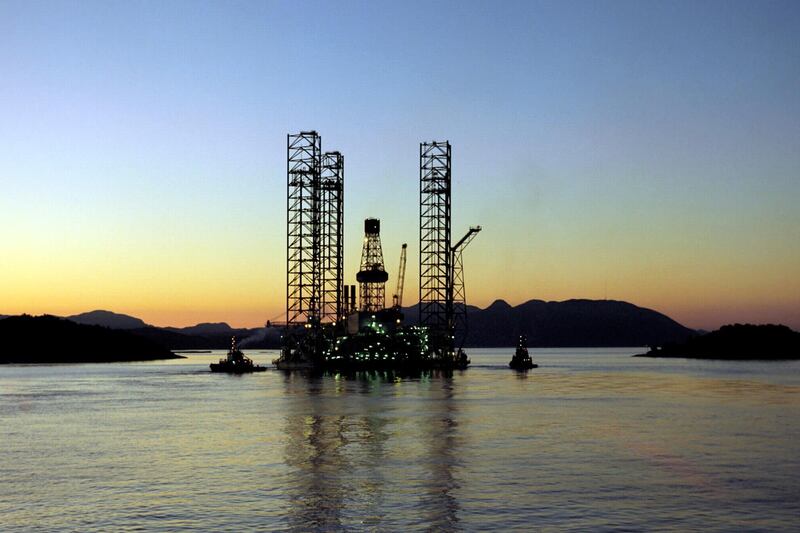Scotland’s oil and gas sector stands at a “crossroads” with the North Sea in danger of losing its status as a major player in the field, a report has warned. A downturn in exploration for new deposits and a fall in investments has put a potential revival in the industry at risk, Oil & Gas UK said. It predicted that if the current status quo continued, post-2020 production would slip considerably.
"If no intervention was to be made, production could be expected to fall to around 0.5 million boepd (barrels of oil per day) in 2035, greatly reducing the significance of UK Continental Shelf production in terms of its contribution to the UK economy and its energy supply," the report stated.
"Whilst production is expected to remain strong through 2019, the lack of new project approvals means is it almost certain that the basin will return to a position of production decline post-2020," it added.
While prices have recovered since a slump in 2014, which led to thousands of job losses, and production levels are rising again the oil sector’s long-term stability is still at risk.
“Industry is emerging from one of the most testing downturns in its history,” Deidre Michie, chief executive of Oil & Gas UK, is expected to tell sector leaders today at The London Breakfast Briefing.
“Despite the improvements seen in recent years, we find ourselves at a crossroads. Record low drilling activity, coupled with the supply chain squeeze, threaten industry’s ability to effectively service an increase in activity and maximise economic recovery,” she will say, according to the Scotsman.
Annual sales of oil and has produced in Scotland are worth some £17.5 billion a year and around 120,000 people across Scotland are employed in industry related to the North Sea.
However, the Oil & Gas report said a slump in investment had gone from £15 million three years ago to a predicted £5.5 million this year.
Only four exploration wells have been started in 2018, with total exploration activity expected to be the lowest this year since 1965. 14 were stated last year compared to 28 in 2010. Overall, the number of development wells feel to 71 last year, in comparison to the 129 in 2015.
_______________
Read more:
[ China's growing appetite for gas good for producers but new challenges arise ]
[ LNG shippers set to gain as Arctic sea routes open up ]
[ US dollar and gold: bulls to take on the bears in Q4 ]
_______________
“The UK Continental Shelf is a more attractive investment proposition – our challenge now is to take advantage of this. We have to drive an increase in activity while continuing to find and implement even more efficient ways of working which support the health of supply chain companies whilst also keeping costs under control,” Ms MIchie is expected to say.
Some 40,000 North Sea jobs were lost in the aftermath of the oil price crash of 2014. Prices fell from about $110 per barrel to about $40 per barrel but recovered to $70 last year.






